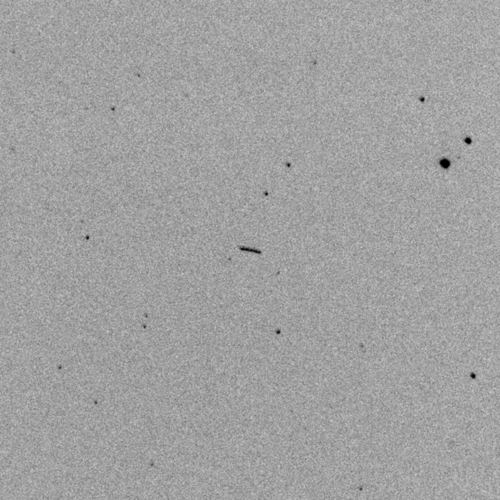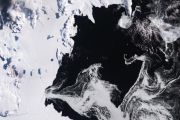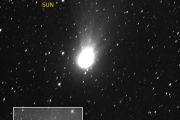
Copernical Team
NASA sharpens focus of James Webb Space Telescope
 NASA on Wednesday planned to release details about how the agency is sharpening the focus of the large main mirror on the James Webb Space Telescope, which will start peering at the earliest galaxies in the universe soon.
NASA plans to update the press and the public on James Webb progress during a virtual press conference at noon EDT.
Previously, the agency released early images fro
NASA on Wednesday planned to release details about how the agency is sharpening the focus of the large main mirror on the James Webb Space Telescope, which will start peering at the earliest galaxies in the universe soon.
NASA plans to update the press and the public on James Webb progress during a virtual press conference at noon EDT.
Previously, the agency released early images fro Astronauts wrap up spacewalk outside ISS to prep for new solar arrays
 Two NASA astronauts completed a spacewalk Tuesday to prepare for the installation of new solar arrays at the International Space Station, amid tension between Russia and the United States over the Ukraine conflict.
Astronauts Kayla Barron, 34, and Raja Chari, 44, spent six hours and 54 minutes on their spacewalk, having exited the station around 8:15 a.m. EDT - their second and first spac
Two NASA astronauts completed a spacewalk Tuesday to prepare for the installation of new solar arrays at the International Space Station, amid tension between Russia and the United States over the Ukraine conflict.
Astronauts Kayla Barron, 34, and Raja Chari, 44, spent six hours and 54 minutes on their spacewalk, having exited the station around 8:15 a.m. EDT - their second and first spac Astra launches three satellites in successful mission from Alaska
 California-based rocket company Astra Space launched three small satellites from Alaska on Tuesday morning and said the payloads deployed successfully.
The rocket, LV0009, lifted off from Pacific Spaceport Complex on Kodiak Island as planned at 9:22 a.m. PDT.
"We have great news to report," Astra CEO Chris Kemp said on a live broadcast a little over an hour after launch. "The pay
California-based rocket company Astra Space launched three small satellites from Alaska on Tuesday morning and said the payloads deployed successfully.
The rocket, LV0009, lifted off from Pacific Spaceport Complex on Kodiak Island as planned at 9:22 a.m. PDT.
"We have great news to report," Astra CEO Chris Kemp said on a live broadcast a little over an hour after launch. "The pay NASA system predicts impact of small asteroid
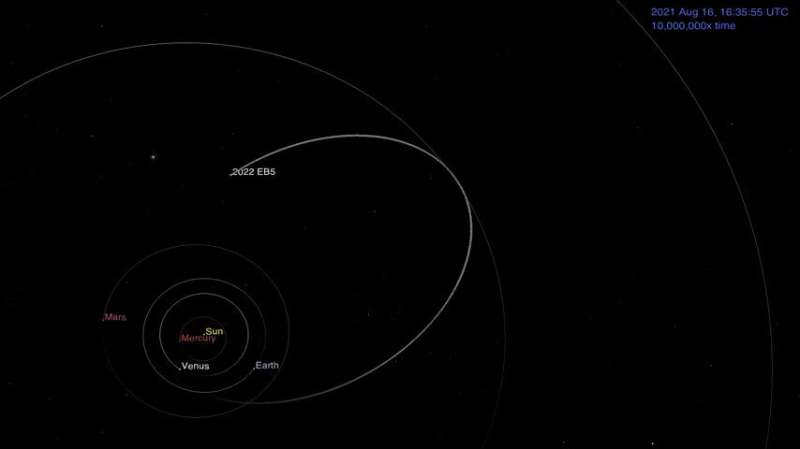
A small asteroid hit Earth's atmosphere over the Norwegian Sea before disintegrating on March 11, 2022. But this event wasn't a complete surprise: Astronomers knew it was on a collision course, predicting exactly where and when the impact would happen.
Two hours before the asteroid made impact, K. Sarneczky at the Piszkéstető Observatory in northern Hungary first reported observations of the small object to the Minor Planet Center—the internationally recognized clearinghouse for the position measurements of small celestial bodies. The object was posted on the Minor Planet Center's Near-Earth Object Confirmation Page to flag it for additional observations that would confirm it as a previously unknown asteroid.
NASA's "Scout" impact hazard assessment system then took these early measurements to calculate the trajectory of 2022 EB5. As soon as Scout determined that 2022 EB5 was going to hit Earth's atmosphere, the system alerted the Center for Near Earth Object Studies (CNEOS) and NASA's Planetary Defense Coordination Office, and flagged the object on the Scout webpage to notify the near-Earth object observing community. Maintained by CNEOS at NASA's Jet Propulsion Laboratory in Southern California, Scout automatically searches the Minor Planet Center's database for possible new short-term impactors.
Launching robots into lunar caves
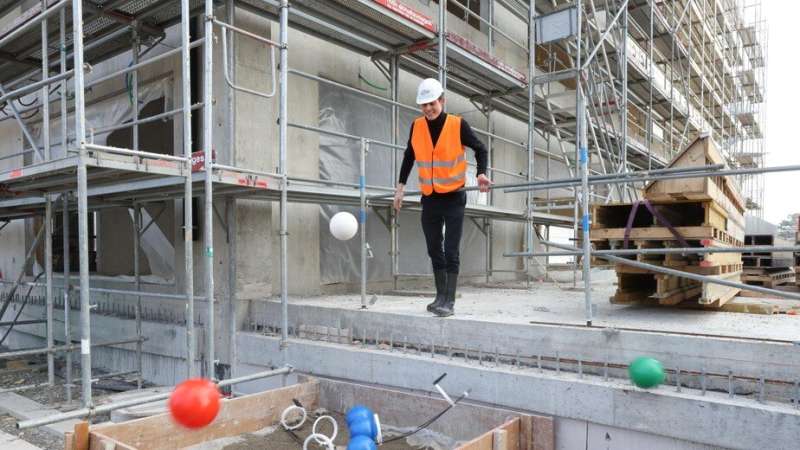
A hundred meters below the surface of the moon lie caves untouched by humans. They were discovered about ten years ago, but space agencies want to send robots to investigate these mysterious cavities before astronauts venture in. "On the moon's surface, the temperature is 150 degrees above zero during the day and 150 degrees below zero at night," says Lucas Froissart, who recently completed a Master's degree in mechanical engineering at EPFL. "In these subterranean caves, which can be reached through natural, vertical pits, the temperature is -30 degrees and there's no radiation. Since the climate is constant and tolerable for human beings, these tunnels could conceivably serve as base camps."
Round robots
During his Master's program, Froissart landed an internship at the Japan Aerospace Exploration Agency (JAXA). Because of the pandemic, however, he couldn't go to Tokyo. He ended up doing his internship work in Professor Auke Ijspeert's lab, collaborating with his Japanese colleagues by video conference.
NOAA's GOES-T reaches geostationary orbit, now designated GOES-18
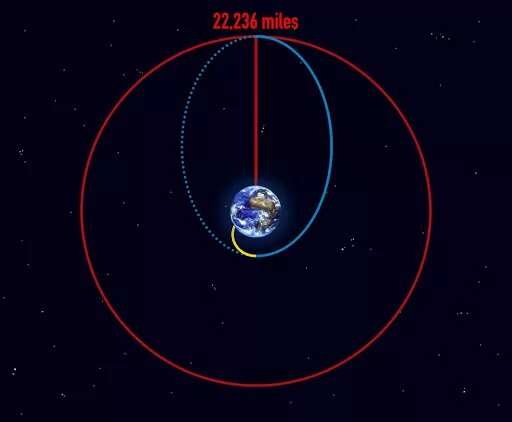
MDA retires space tracking and surveillance system after 12 years, thousands of missions
Millennium Space Systems shipped GEO Wide Field of View for launch
 The U.S. Space Force's Wide Field of View spacecraft arrived safely on February 2 to the launch processing facility in Florida, having shipped from Millennium Space Systems, a Boeing (NYSE: BA) company's headquarters in El Segundo, California.
This satellite was procured by the Space Systems Command to serve as testbed for Wide Field of View technologies in geosynchronous, or GEO, orbit fo
The U.S. Space Force's Wide Field of View spacecraft arrived safely on February 2 to the launch processing facility in Florida, having shipped from Millennium Space Systems, a Boeing (NYSE: BA) company's headquarters in El Segundo, California.
This satellite was procured by the Space Systems Command to serve as testbed for Wide Field of View technologies in geosynchronous, or GEO, orbit fo GMV guarantees PAZ satellite services
 GMV , the world's number-one independent supplier of telecommunication satellite control centers and responsible for designing, developing, validating, and implementing the control center and user services included in the ground segment of the PAZ satellite, has signed a new contract with INTA (Instituto Nacional de Tecnica Aeroespacial) for the corrective maintenance of the main elements of its
GMV , the world's number-one independent supplier of telecommunication satellite control centers and responsible for designing, developing, validating, and implementing the control center and user services included in the ground segment of the PAZ satellite, has signed a new contract with INTA (Instituto Nacional de Tecnica Aeroespacial) for the corrective maintenance of the main elements of its Fifth asteroid ever discovered before impact
